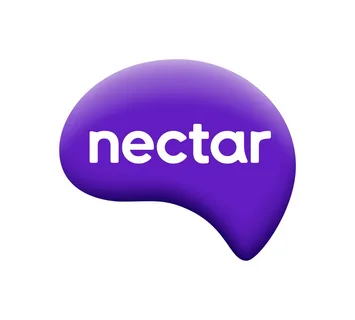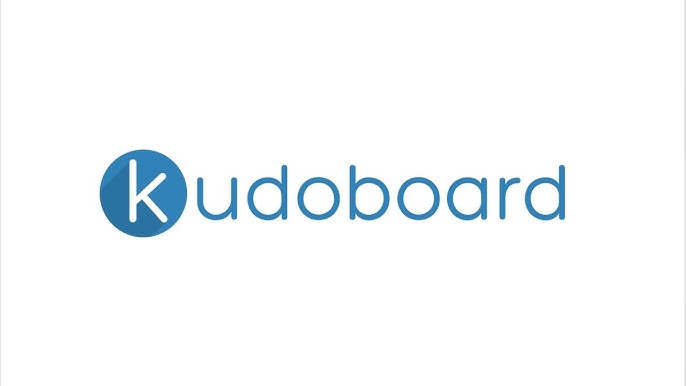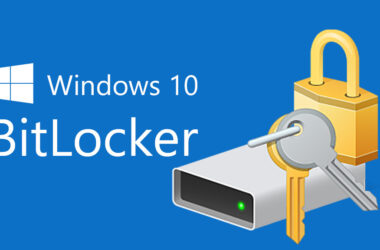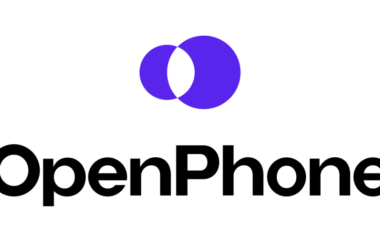When it comes to fostering team spirit, celebrating milestones, or simply expressing gratitude, kudoboard has been a go-to platform for many. Its intuitive interface and collaborative features have made it a favorite among teams and communities. However, like any tool, kudoboard has its limitations, and sometimes, users may find themselves in need of alternatives that better suit their specific needs. In this comprehensive guide, we’ll delve into the world of kudoboard alternatives, exploring their features, limitations, and what sets them apart.
Features And Limitations of Kudoboard

As we dive into the nuanced aspects of Kudoboard, let’s navigate through its features and limitations, ensuring a well-rounded understanding before embarking on your celebratory journey.
Features:
- Customizable Templates: Kudoboard offers a variety of templates, allowing users to personalize their message boards with different themes, layouts, and designs.
- Multimedia Integration: Users can enrich their messages by seamlessly integrating images, videos, and GIFs, fostering a dynamic and visually engaging celebration experience.
- Real-time Collaboration: Kudoboard facilitates real-time collaboration, enabling team members to contribute messages simultaneously, creating a sense of unity and camaraderie.
- Privacy Options: Users have control over the privacy settings of their boards, choosing between public, private, or restricted access, ensuring the right level of visibility for each celebration.
- User-Friendly Interface: Kudoboard boasts an intuitive interface, making it accessible for users of all skill levels to navigate and contribute effortlessly.
Limitations:
- Limited Customization: Despite offering templates, some users may find the customization options somewhat restrictive, craving more creative control over the appearance of their boards.
- Premium Plans Cost: Access to advanced features and additional customization options often requires a premium subscription, potentially limiting accessibility for budget-conscious users or smaller teams.
- Learning Curve for New Users: The interface, while user-friendly for experienced users, may present a learning curve for new users, impacting the ease of onboarding.
- Integration Constraints: Depending on users’ existing tools and platforms, integration options with Kudoboard may be limited, potentially hindering seamless collaboration with other business applications.
- Moderation Challenges: In larger teams or public boards, moderating content can become challenging, requiring careful oversight to ensure appropriateness and adherence to guidelines.
What Sets kudoboard Apart: The Unique Selling Proposition
Despite its limitations, kudoboard stands out for its user-friendly interface, real-time collaboration features, and multimedia integration. For teams and communities looking for a platform to celebrate moments together, kudoboard offers a compelling solution. However, as needs vary, exploring kudoboard alternatives can provide insights into other options that may better align with specific requirements.
The Need for kudoboard Alternatives: Exploring Options

As we delve into the shifting dynamics and evolving requirements, let’s navigate through “The Need for Kudoboard Alternatives: Exploring Options,” unraveling the diverse factors that prompt teams to seek alternatives and ensuring a well-informed exploration of collaborative platforms.
1. Evolving Feature Requirements
As teams evolve, their dynamics, goals, and collaborative needs undergo a transformation. Kudoboard, while commendable in its own right, might fall short in catering to the diverse feature requirements that emerge with growth. Teams may find themselves in need of kudoboard alternative platforms that offer enhanced customization, integration with specific tools, or advanced collaboration features. This evolution in feature demands becomes a driving force for exploring alternatives that align more closely with the team’s burgeoning requirements.
2. Budgetary Considerations
In the ever-shifting landscape of organizational priorities, budget constraints often play a pivotal role in decision-making. For smaller teams or organizations operating on limited financial resources, the cost associated with Kudoboard’s premium plans might be a determining factor. Seeking cost-effective kudoboard alternatives becomes imperative, ensuring that the chosen platform not only meets the team’s collaborative needs but also aligns harmoniously with budgetary considerations, fostering a sustainable and pragmatic approach.
3. Scalability
The journey of teams is often marked by expansion, both in terms of size and complexity. Kudoboard, designed for collaborative celebrations, may face challenges in accommodating the scalability requirements of a growing team. Teams need kudoboard alternatives that seamlessly adapt to expansion, providing not only the required features but also the capacity to handle increased user numbers, messages, and collaborative activities. Scalability, therefore, emerges as a crucial factor driving the exploration of alternative platforms.
4. User Experience Preferences
User experience preferences vary widely across teams, and what may be intuitive for some may pose challenges for others. Kudoboard’s interface, while user-friendly for many, might not align perfectly with the specific preferences of every user. Teams may seek alternatives that offer a more tailored and intuitive user experience, ensuring that the platform fosters engagement without causing friction. User-centricity becomes a guiding principle as teams explore options that align seamlessly with their unique user experience preferences.
Commonly Used kudoboard Alternatives For Collaborative Celebrations

Navigating through the diverse landscape of collaborative celebration kudoboard alternatives, let’s explore a multitude of options that go beyond Kudoboard, each offering its unique features and considerations to enhance the art of acknowledging accomplishments and fostering team camaraderie.
1. Awardco
Awardco stands out as an exemplary kudoboard alternative, specializing in employee recognition through its comprehensive reward and recognition platform. By providing a diverse range of features to acknowledge and appreciate team members, Awardco contributes to creating a positive and rewarding work environment. Users can leverage its extensive capabilities for recognizing outstanding contributions and achievements within the team. However, it’s crucial to note that some users may encounter limitations in terms of available reward options, as the platform’s selection may be subject to certain preferences.
2. Bonusly
Bonusly takes the spotlight as a peer-to-peer recognition platform, offering a seamless integration of recognition into daily workflows. With its emphasis on frequent and small-scale rewards, Bonusly encourages a culture of appreciation among team members. While the platform excels in its straightforward approach, users might find limitations in the customization options for reward categories. Nevertheless, Bonusly’s ability to instill a culture of continuous acknowledgment remains a key draw for teams exploring collaborative celebration kudoboard alternatives.
3. Kudos
Kudos emerges as a holistic alternative for employee recognition and engagement, presenting a comprehensive platform to acknowledge accomplishments and nurture a positive workplace culture. The platform’s robust features cater to various aspects of recognition, from acknowledging individual achievements to fostering team cohesion. However, smaller organizations may find the pricing less competitive, and it’s essential for teams to weigh the benefits against the associated costs when considering Kudos as their collaborative celebration alternative.
4. Motivosity
Motivosity shines as a platform with a focus on social recognition, employee engagement, and performance measurement. Designed to boost morale and camaraderie within teams, Motivosity provides a multifaceted approach to recognizing and appreciating contributions. However, teams should be mindful of a potential learning curve for users new to such systems. While Motivosity offers a rich set of features, it’s important to consider the time and resources required for effective onboarding.
5. Nectar
Nectar distinguishes itself with a strong emphasis on employee recognition and rewards, offering a flexible and customizable program. The platform allows organizations to tailor their recognition efforts, adding a personalized touch to acknowledging team members. However, smaller businesses might find the pricing plans less accommodating, and it’s crucial to evaluate the cost-effectiveness of Nectar against the specific needs and budget constraints of the organization.
6. Guusto
Guusto carves its niche in employee recognition by focusing on personalized gifts and rewards, injecting a unique and thoughtful element into acknowledgment efforts. The platform’s emphasis on personalization adds a distinctive charm to the recognition process. However, users may encounter limitations in terms of integration options with other business tools, requiring consideration based on the organization’s existing tech stack and collaboration requirements.
7. Bucketlist
Bucketlist presents itself as a collaborative celebration kudoboard alternative with a unique focus on goal-setting. Ideal for teams looking to align their recognition efforts with individual and team objectives, Bucketlist offers a platform that encourages both acknowledgment and the pursuit of goals. However, organizations should be aware that the emphasis on goal-setting may not align with the priorities of every team and may require customization based on specific preferences.
8. Empuls
Empuls positions itself as a holistic platform for employee engagement, recognition, and surveys, providing a comprehensive solution for organizations seeking to enhance their overall work culture. With a range of features covering various aspects of employee engagement, Empuls aims to create a positive and collaborative workplace environment. However, teams should carefully evaluate the pricing structure, as it may be less suitable for smaller teams or startups with budget constraints.
9. BambooHR
BambooHR seamlessly incorporates employee recognition features into its comprehensive HR software solution, providing an all-encompassing platform for various HR needs. This makes it an attractive alternative not only to Kudoboard but also to hibob. Tailored for companies in search of a unified solution, BambooHR effortlessly integrates recognition initiatives within the broader HR ecosystem. It’s worth noting that while larger enterprises may find the full suite of features beneficial, smaller businesses might consider them unnecessary. Hence, organizations exploring BambooHR as an alternative to Kudoboard and hibob should carefully evaluate the benefits against the associated costs to ensure optimal alignment with their collaborative celebration goals.
10. Culturegreeting
Culturegreeting stands out for fostering a positive workplace culture through personalized greetings and messages. As an kudoboard alternative for collaborative celebrations, Culturegreeting brings a unique element of personalization to acknowledgment efforts. Teams can leverage the platform to create a positive and inclusive atmosphere. However, users should be aware that there may be limitations in customization options for greetings, and consideration should be given based on the organization’s preferences and the desired level of personalization in their collaborative celebrations.
Factors To Consider While Choosing The Perfect Kudoboard Alternative

Embarking on the journey to find the ideal Kudoboard alternative involves navigating through a myriad of considerations. Let’s delve into the intricacies of “Factors To Consider While Choosing The Perfect Kudoboard Alternative,” ensuring a thoughtful exploration that leads to a collaborative platform seamlessly aligned with your team’s unique needs and aspirations.
1. Feature Set
As teams embark on the quest for the perfect Kudoboard alternative, a critical consideration lies in assessing the feature set offered by each option. Teams should evaluate functionalities such as customization options, collaborative tools, and multimedia integration to ensure that the chosen kudoboard alternative aligns seamlessly with their specific celebratory needs. From customizable templates to real-time collaboration features, a comprehensive feature set ensures that the selected platform can cater to the diverse requirements of the team.
2. Cost and Budget
Budget considerations play a pivotal role in the decision-making process when selecting a collaborative celebration kudoboard alternative. Teams must carefully examine the pricing plans and subscription models of each platform, ensuring that the costs align with their budgetary constraints. Balancing affordability with value is key, as the selected alternative should not only meet the team’s celebratory needs but also provide a return on investment in terms of enhanced collaboration and engagement.
3. Integration Options
Seamless integration with existing tools and platforms is a crucial factor to streamline workflows and ensure a cohesive work environment. Teams should assess the compatibility of each kudoboard alternative with their current tech stack, examining integration options with communication tools, project management platforms, and other essential business applications. A well-integrated solution not only enhances collaboration but also reduces friction in daily operations.
4. User Experience
The success of a collaborative celebration platform heavily depends on user adoption, making user experience a paramount consideration. Teams should prioritize alternatives with intuitive interfaces, user-friendly navigation, and straightforward onboarding processes. A platform that aligns with the team’s preferences and ensures a positive user experience enhances engagement and encourages active participation in celebratory initiatives.
5. Scalability and Growth
Choosing a Kudoboard alternative that can scale alongside the team’s growth is crucial for long-term success. Evaluating the scalability options of each platform ensures that the chosen alternative can accommodate an expanding user base, increasing celebratory activities, and evolving collaboration needs. A platform designed for scalability provides a sustainable solution that can grow with the team, preventing the need for frequent transitions.
Conclusion
In conclusion, the realm of collaborative celebrations and expressions of appreciation extends far beyond the familiar confines of Kudoboard, and exploring alternatives becomes a strategic endeavor for teams seeking tailored solutions. As we’ve navigated through the features, limitations, and a diverse array of alternatives, it becomes evident that the perfect collaborative celebration platform is contingent upon various factors. From Awardco’s emphasis on employee recognition to Culturegreeting’s focus on fostering a positive workplace culture, each alternative brings its unique strengths and considerations.
The meticulous evaluation of factors such as feature set, cost, integration options, user experience, and scalability forms the cornerstone of an informed decision-making process. Whether driven by evolving team dynamics, budget constraints, or the need for a more intuitive user experience, teams can now embark on their celebratory journey equipped with the knowledge to select a platform that not only meets their immediate needs but paves the way for a collaborative future. In this exploration beyond Kudoboard, the quest for the perfect alternative becomes a dynamic and thoughtful pursuit, aligning seamlessly with the diverse celebratory goals of teams and communities.









